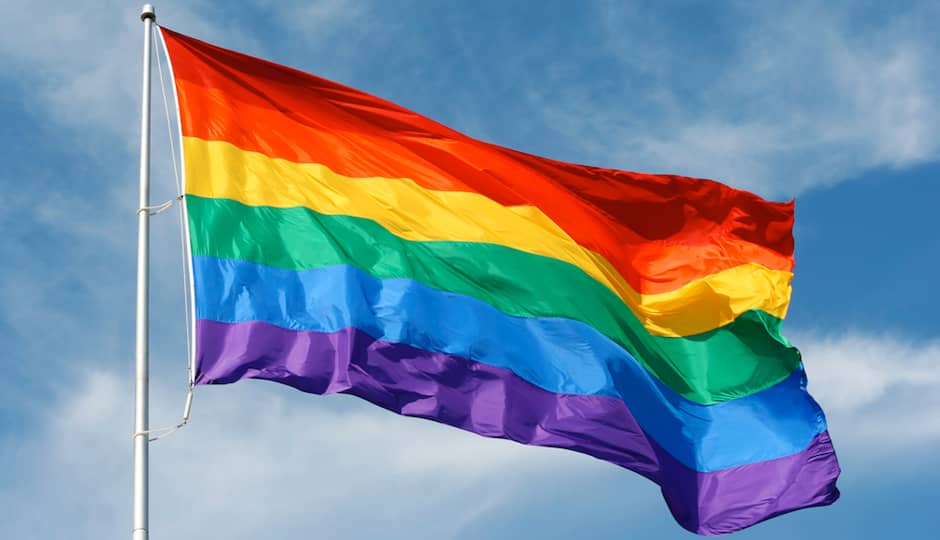
Research commissioned by the Jamaica Forum for Lesbians, All Sexuals and Gays (J-FLAG) in March 2019 has concluded that between seven and 30 per cent of the population are believed to be lesbians, gays, bisexuals, and transgender (LGBT), and a large majority of employers (68 per cent) were willing to report violence and discrimination against them.
Importantly, 88 per cent of politicians were also willing to report violence against LGBTs, but only 34 per cent of the general public would.
The Attitudes and Perceptions Survey, which concluded in March, will serve as a key part of the Equality for All Foundation’s commemoration of International Day against Homophobia and Transphobia, according to representatives who were guests at a Gleaner Editors’ Forum on Thursday.
Jaevion Nelson, executive director of J-FLAG, said the organisation’s advocacy has been badly hampered by the mysterious December 2018 fire that destroyed office space it occupied, but they were determined to continue working on behalf of the gay community.
“Over the last couple of years, we have seen some improvement in the situation where LGBT people are concerned. I think there is respect and tolerance for the community, but we are still a very far way from where we need to go,” Nelson, also a Gleaner columnist, told the forum.
“There is still discrimination against a number of persons at work, church, in their communities, at schools, by way of bullying, and in other spaces, particular in public spaces,” he told The Sunday Gleaner.
He said a number of LGBT persons were forced to avoid public spaces because of high levels of homophobia and transphobia, and some participants said that using public transportation was also dangerous to their well-being. Many were forced to depend solely on taxis for transportation.
“Ultimately, those LGBT people who do not have the wherewithal and money to take cabs an go to spaces where respect and tolerance are higher find it difficult,” he said.
Displacement, homelessness, and bullying are among the challenges faced by members of the community, but the panellists implored Jamaicans to be tolerant, stating that they loved their country.
KEY FINDINGS OF SURVEY
1. Levels of awareness of specific LGBT terms are nearly universal across all study populations. Lowest awareness was among those responding about transgender, with 97 per cent.
2. The traditional media are the most dominant source of information about LGBT issues across all study populations. However, social media is beginning to play an important part in disseminating information on these issues.
3. The average age at which people become aware of homosexuality is 15 years.
4. Respondents are of the view that between seven and 30 per cent of Jamaicans are LGBT and that the community is spread right across the socio-economic spectrum, although among the general population, persons in the upper socio-economic groups are singled out.
5. Members of the general public, more than employers and politicians, have very strong negative attitudes towards homosexuality and homosexuals. All groups of respondents report strong negative attitudes.
6. The general consensus among all study populations is that homosexuals may be converted to heterosexuals.
7. The majority of the persons interviewed share the view that homosexuals experience the same emotions as heterosexuals.
8. Feelings about conversion are driven by considerations about the Bible and views that homosexuals are not born, but made.
9. Tolerance for homosexual behaviour is still very low across all study populations. Tolerance is lowest among the general public when compared to employers and politicians.
10. There is general misinformation about the applicability of the buggery law. The majority are of the view that it applies to both males and females.
11. The majority do not support a change to the buggery law as well as the Charter of Rights.
12. Employers and politicians are more open to the idea of widening or expanding the meaning of sexual intercourse than are members of the general public.
13. Views are divided across the different study populations about how much support the Government is giving to the LGBT community. That is, while a significant number of politicians and employers are of the view that the Government is playing its part, if not adequately, the general public is not convinced.
13. Very little support can be expected from the general public for efforts by the government or members of parliament to protect the LGBT community from violence and discrimination. Strongest support for such efforts will come from politicians.
14. There is some level of support among politicians and employers for teaching tolerance for persons of the LGBT community in schools. The general public, however, remains staunchly opposed to this.
15. Willingness to report violence or discrimination against LGBTs is strongest among employers (68 per cent) and politicians (88 per cent) compared to the general public (34 per cent).
Advertise with the mоѕt vіѕіtеd nеwѕ ѕіtе іn Antigua!
We offer fully customizable and flexible digital marketing packages.
Contact us at [email protected]
















